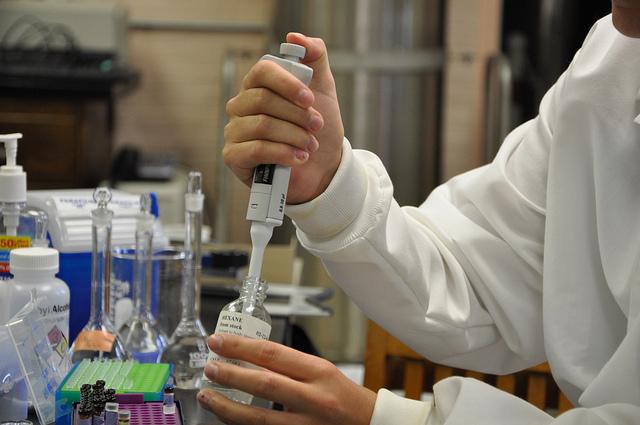With its impact on restricting vital research already brewing contempt among scientists and researchers, a controversial fetal tissue bill is losing support as new problems surface.
The bill, proposed by Rep. Andre Jacque, R-De Pere, and Rep. Joel Kleefisch, R-Oconomowoc, bans the sale of and restricts research that uses fetal tissue. Jacque and Kleefish released a joint statement claiming there were more ethical methods not involving fetal tissue through which research could be conducted. The bill has passed the state assembly committee, but its current status is still undecided.
“We’re setting a higher ethical standard for research in Wisconsin and putting an end to aborted tissue trafficking,” Jacque said in the statement.
The bill, however, greatly impacts research done at University of Wisconsin.
Impact on UW’s research
Almost 700 faculty members have signed an open letter against the bill, Kelly Tyrrell, UW communications science writer, said. In addition, academic staff created their own resolution to the bill, and scientists and staff have sent a letter opposing the bill as well, Tyrrell said.
Fetal tissue research, Tyrrell said, is a relatively small proportion of the overall research conducted on campus. But, despite being small scale, the findings it generates make it valuable to UW.
“The idea of banning research on a very important tool or using a very important tool such as fetal tissue and criminalizing researchers who use it as a whole is what the university is opposed to,” Tyrrell said.
Dominique Brossard, UW life sciences communication professor and expert on media, science and policy, said the U.S. has been using fetal tissue to advance medicine since the 1930s and there are more than 100 labs at UW that rely on research involving the usage of fetal tissue. This research, Brossard said, has been instrumental in generating important findings pertaining to the polio vaccine, cancer, diabetes and Parkinson’s disease, among others.
Several scientists have established an international reputation researching at these labs, Brossard said. Restricting research using fetal tissue might push these researchers to leave UW, which Brossard said would have “disastrous consequences” for Wisconsin and the university.
“Number one, [fetal tissue research is] very important for the institution and number two, it’s important for humanity as a whole,” Brossard said.
Wisconsin organizations and legislators divided
Brossard said she does not believe Assembly Speaker Robin Vos, R-Rochester, is convinced this bill would pass or that he has a clear majority. In an interview with The Capital Times, Vos said the bill could go either way and may not get enough votes.
The bill has received bipartisan opposition from organizations such as Wisconsin Technology Council, which is primarily Republican, and Wisconsin Chamber of Commerce, Brossard said. These organizations, Brossard said, have argued that aside from the bill’s consequences on medical research, it will also impact the state’s economy.
“[The bill] is not just a thing from a bunch of lefties,” Brossard said. “This is clearly going to have economic consequences and people have voiced their reservations across the political spectrum.”
Under federal law, the sale of fetal tissue is banned. UW researchers and scientists acquire their fetal tissue from tissue banks where it has been donated by clinics, Brossard said.
But support for the bill has been voiced by legislators such as Rep. Janel Brandtjen, R-Menomonee Falls, who said in a statement a group of doctors from the Medical College of Wisconsin were also opposed to using fetal tissue in research, citing it as “unethical.”
Brandtjen said the doctors believed most of the useful research involving stem cells involved adult cells, and that embryonic stem cell research did not produce any significant treatments.
Rep. Cody Horlacher, R-Mukwonago, also voiced support for the bill and said in a statement fetal tissue from unborn babies was not fit for scientific use. Horlacher is a co-sponsor for the bill and encouraged others to protect lives of the unborn through more action.
“The lives of the unborn must be protected and we as leaders must be willing to stand up and do everything in our power to further that mission,” Horlacher said in the statement. “Fetal tissue from aborted babies should not be used for scientific purposes.”
In an email to The Badger Herald, UW System spokesperson Alex Hummel said the UW System and UW have been involved in valuable discussions with legislators about possible alternatives or amendments to address concerns surrounding the bill.
“One perspective everyone shares is that people in Wisconsin and throughout the world benefit from our UW System institutions’ commitment to research that leads to medical advancements, cures for disease and other breakthroughs improving the quality of life for millions,” Hummel said.


















